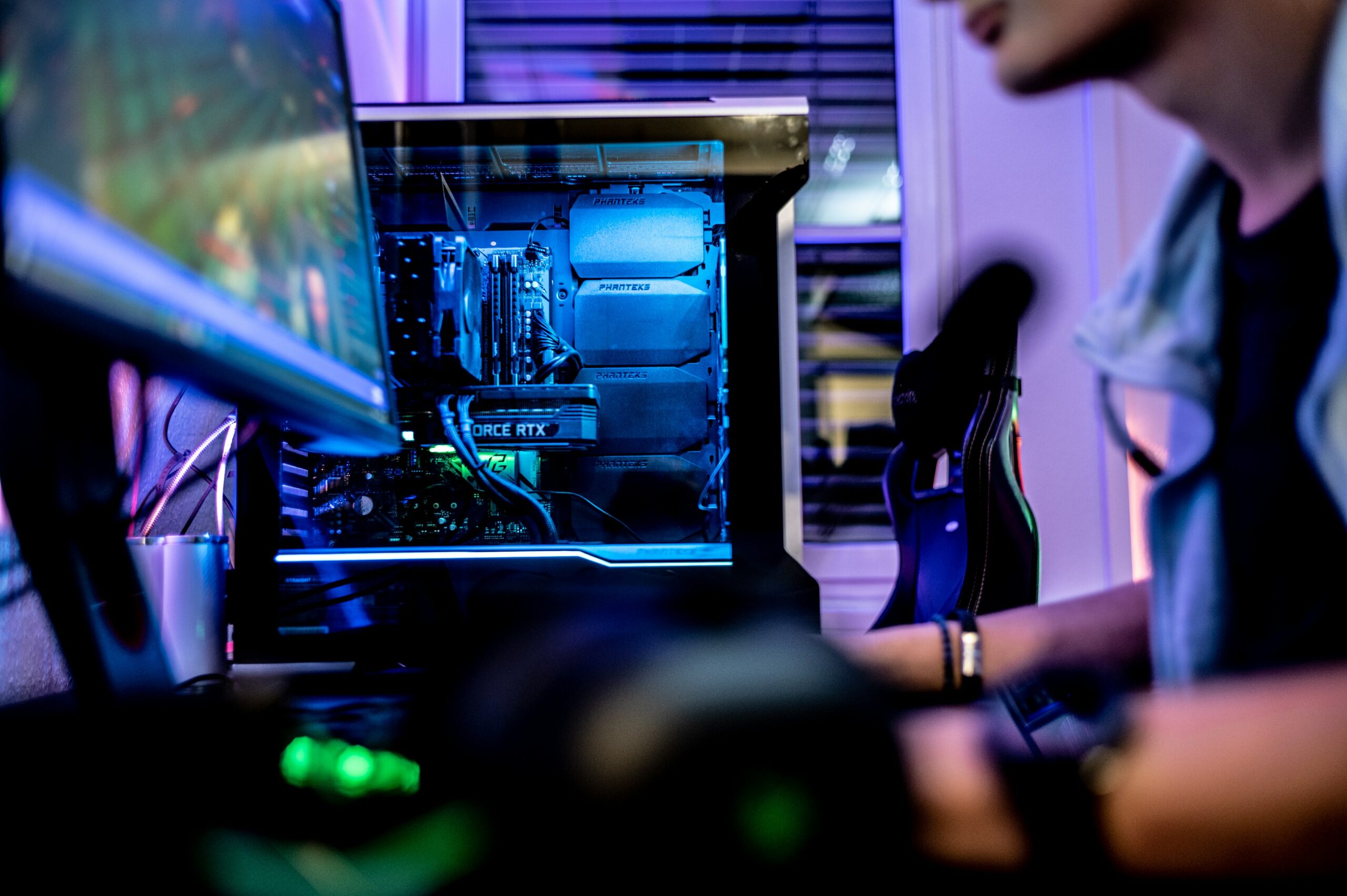Since the early days of competitive gaming, there have been debates on whether esports should be considered a sport. Some people say that esports can’t be considered a sport because there is no physical activity involved. However, there are many similarities between sports and esports that suggest that esports should be considered a sport. In this essay, we will explore some of those similarities and why they matter.
Why esports should be considered a sport
In recent years, a new phenomenon has taken the world by storm: Esports. esports are video games which are played competitively for spectators, often in huge arenas in front of millions of people. They have become increasingly popular, with some tournaments offering huge prize pools of over $1 million. So, what are the similarities between sports and esports? Let’s take a look.
A brief history of Esports
The term “esports” covers a wide range of video games that are played competitively. It is a relatively new phenomenon, but one that has grown rapidly in recent years. The first recorded esports competition took place in 1972 at Stanford University, where students played a Spacewar tournament.
Since then, the popularity of esports has grown rapidly. There are now professional leagues and tournaments for many different games, including first-person shooters, real-time strategy games, and multiplayer online battle arena (MOBA) games. The global esports economy is estimated to be worth around $1 billion (£760 million) in 2020.
One of the key reasons for the growth of esports is the increasing popularity of live streaming platforms such as Twitch and YouTube Gaming. These platforms allow gamers to share their gameplay with a wider audience, and also offer a way for spectators to interact with each other. This has helped to create a sense of community around particular games and has made it easier for professional players to gain exposure.
The rise of Esports

Since the early 2010s, esports have been growing in popularity. Professional gamers can now make a living by playing video games in front of spectators. Just like traditional sports, there are different leagues and tournaments that gamers can compete in. The most popular games in esports include League of Legends, Counter-Strike: Global Offensive, Dota 2 and Overwatch.
Esport matches are usually commentated by one or more casters (announcers), whose job is to provide insight and analysis of the game as it unfolds. There are also often on-screen graphics that provide information about the players, teams and stats. Just like traditional sports, esports matches can be watched live or on demand.
There are many similarities between traditional sports and esports. Both require a high level of skill and dedication to succeed at the professional level. Players of both traditional sports and esports need to be able to think strategically and make split-second decisions. They must also be physically fit (esports players need good hand-eye coordination and reflexes).
While there are some similarities between traditional sports and esports, there are also some key differences. Traditional sports are physical activities that take place in the real world, while esports are digital games that are played online. This means that anyone, anywhere can compete in esports tournaments, regardless of their physical location or ability.
So why aren’t esport athletes considered “real” athletes? There are a few reasons. First, many people consider sports to be physical activities only. Second, unlike traditional sports, there is no one governing body for all of esports (although this is starting to change). And finally, some people simply don’t believe that playing video games can be considered a “sport” at all.
Despite these criticisms, there is no denying that professional gaming requires a high level of skill and dedication. And as more people begin to watch and play esports, it’s only a matter of time before they are officially recognized as a legitimate sport.
Why Esports should be considered a sport
Esports have been around for quite a while and has only recently started to gain traction as a popular form of entertainment. Some people may not consider it a sport because it does not physically exert the players. However, there are many similarities between traditional sports and esports that should be considered.
The definition of a sport
The definition of a sport is an activity involving physical exertion and skill in which an individual or team competes against another or others for entertainment.
The key aspects of this definition are physical exertion and skill. Physical exertion is defined as “bodily or muscular strain or work; hard labour”, while skill is defined as “the ability, coming from one’s knowledge, practice, aptitude, etc., to do something well”.
Based on these definitions, it is clear that esports meets the criteria to be considered a sport. Esports require physical exertion, as professional gamers can suffer from things like carpal tunnel syndrome and eye strain. It also requires skill, as professional gamers need to have excellent hand-eye coordination and reflexes.
While there are some who argue that esports should not be considered a sport because it does not require physical activity, this argument does not hold up when examined closely. Esports meets the criteria to be considered a sport, and should therefore be treated as such.
Esports and physical sports share many similarities
At first glance, it may not be obvious why esports should be considered a sport. After all, athletes in traditional sports compete in physical activities, while gamers compete in mental activities. However, upon closer inspection, it becomes apparent that esports and physical sports share many similarities.
Both esports and physical sports require intense focus and concentration. Gamers must have excellent hand-eye coordination and quick reflexes to be successful. Likewise, athletes must be able to maintain their focus and concentrate on their task at hand despite the many distractions around them.
Both esports and physical sports also require immense amounts of practice and dedication to improve. Professional gamers often play for hours upon hours each day to hone their skills. Similarly, professional athletes also devote many hours to practising their craft. They both know that the only way to get better is to put in the time and effort required to improve.
Finally, both esports and physical sports require a great deal of mental stamina. Gamers must be able to remain calm and composed under pressure, as one mistake can often mean the difference between winning and losing. Athletes must also be able to keep their emotions in check, as they need to maintain their focus in order to perform at their best.
Despite the many similarities between esports and physical sports, there are still some people who argue that gaming is not a real sport. However, as more and more people are exposed to competitive gaming, it is becoming increasingly apparent that esports is indeed a real sport that requires just as much skill, dedication, and mental stamina as any other sport out there.
Both require training and practice
Like traditional sports, becoming a professional gamer requires a significant amount of training and practice. In order to be successful, players must dedicate countless hours to playing and refining their skills. The best players in the world have put in years of hard work to get where they are today.
Both have professional leagues and players
Like traditional sports, esports have professional leagues and players. These professional gamers compete in tournaments around the world, with many of the biggest events having prize pools in the millions of dollars. The best players in the world can make a very comfortable living through a combination of sponsorship deals, tournament winnings, and streaming income.
Similarly to traditional sports, there are also amateur levels of esports. Many schools and universities offer esports programs and clubs, giving students the opportunity to compete against other schools in their region or country. There are also plenty of amateur online tournaments that anyone can join. These provide a path for aspiring professional gamers to try and make a name for themselves.
Both are supported by fans and spectators
Whether it’s fans in the stadium or viewers online, both traditional sports and esports rely on the support of dedicated fans and spectators. Major sporting events like the Olympics or the FIFA World Cup draw in huge audiences from all over the world, and esports events are no different. TheLeague of Legends World Championship Finals had a total of 106 million unique viewers in 2017 — that’s more than double the viewership of the Super Bowl that year.
And just like traditional sports, there are plenty of dedicated fans who follow their favourite teams and players all year round. In fact, a 2017 report found that 69% of esports fans watch games on a weekly basis, with 20% watching almost every day.
Conclusion
In conclusion, there are many similarities between sports and esports which suggest that esports should be considered a sport. Both sports and esports require physical skills, strategic thinking, and teamwork, and both are governed by clear rules and regulations. In addition, esports are growing in popularity and attracting increasing levels of investment, just like traditional sports. Given all of these similarities, it seems only fair that esports should be considered a sport in their own right.


